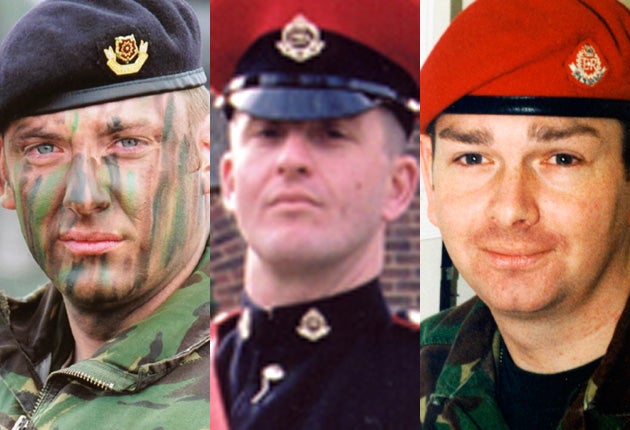The day that all hell broke loose in Basra

The war was over, soldiers felt safe enough to wear berets and to patrol the streets of southern Iraq in soft-skinned jeeps. But the sense of improving security in Basra was tragically short lived.
On 14 August 2003 the unthinkable happened when a military ambulance carrying Captain Dai Jones was blown up by a roadside bomb. Nine days later three Royal Military Policemen were killed in an ambush by Iraqi gunmen.
In a calculated attack on the RMPs a truck pulled up close to their vehicle and opened fire with machine guns. "There was no warning at all. I heard gunfire but didn't know where it was coming from. When the glass came in I shouted to Dewi [the driver] to put his foot down but I got no response at all," Corporal Richard Lay, 40, the sole survivor, told the inquest.
Cpl Dewi Pritchard, 35, a father of two children from Bridgend, in Wales, died almost instantly from multiple gunshot wounds. Major Matthew Titchener, 32, who was expecting his second child, was also killed by the bullets. Company Sergeant Major Colin Wall, 34, died as the vehicle crashed.
It is clear from the evidence heard at the inquiry into the death of Baha Mousa that these killings were the source of great grievance among certain sections of Army.
Rumours started circulating that the men responsible for the shootings were a group Iraqis arrested at the Ibn al-Haitham hotel in Basra where a cache of weapons had been discovered. More rumour said that the guns had been sent to the UK and been forensically linked to the death of the three RMPs. All this proved to be false. In fact, by the time Mr Mousa and the other Iraqis had been taken to the temporary detention facility the weapons had been eliminated from the inquiry.
Join our commenting forum
Join thought-provoking conversations, follow other Independent readers and see their replies
Comments
Bookmark popover
Removed from bookmarks